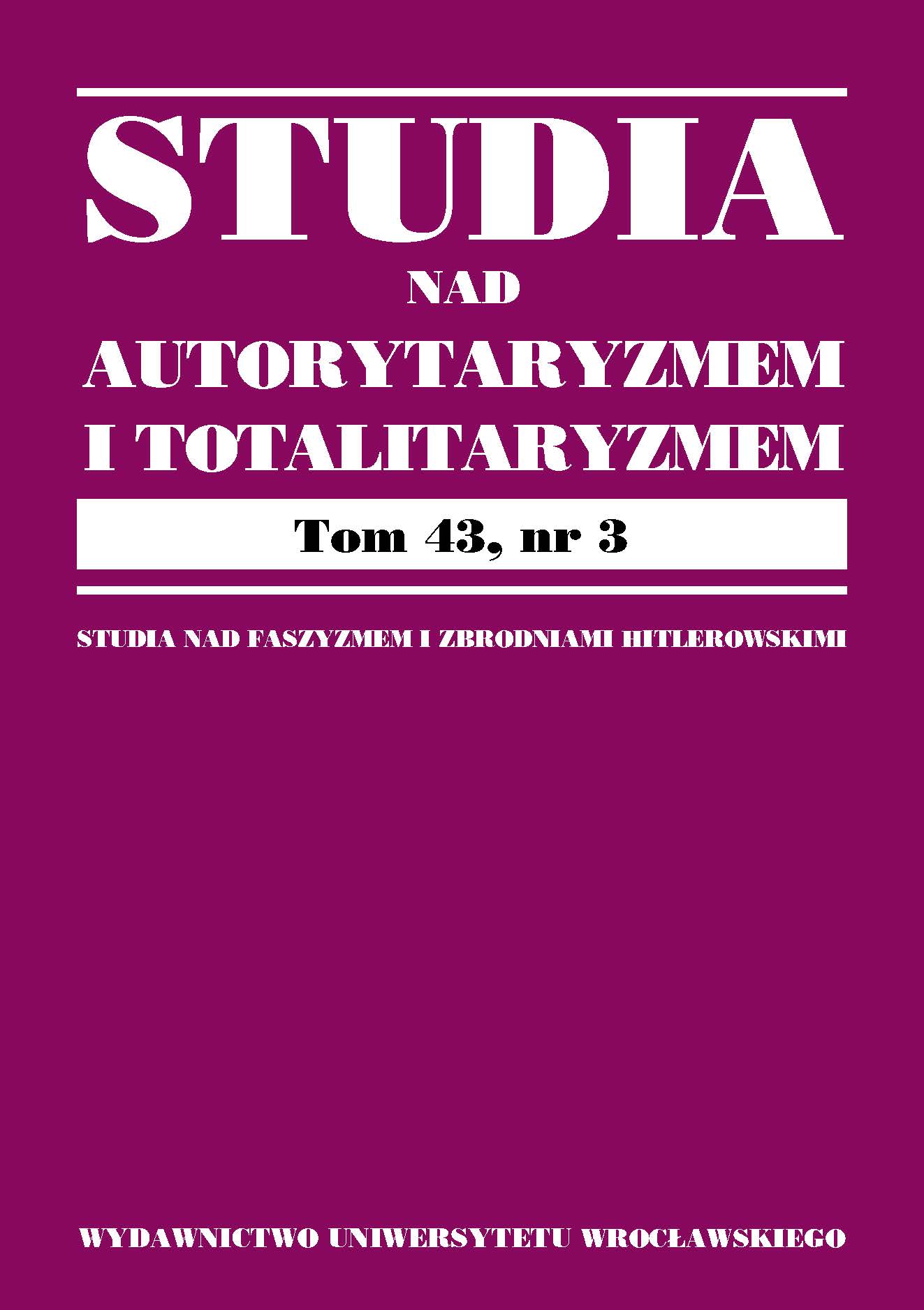

Artykuły

The doctrine of “Great Space” is one of the basic conceptual categories in Carl Schmitt’s extensive and often inconsistent political and legal thought. Studying the extensive research on the life and work of this lawyer, carried out by representatives of various sciences and political orientations, we can get the impression that in comparison with decisionism, the characteristics of a receivership and sovereign dictatorship, looking for analogies between religious and political and systemic concepts referred to as political theology, the figures of the enemy and friend accompanying the Concept of the Political, Großraum remains the least thoroughly investigated. There are at least a few reasons for this, but the most important seems to be the reluctance that is constantly present in many circles, resulting from the strong relationship of this concept with the period of accession to the NSDAP and the conviction that its purpose is only to justify Nazi aggression during the Second World War. Meanwhile, the research problem is much more complex, and the Nazi episode alone in Carl Schmitt’s over 97-year-long life does not provide unambiguous conclusions among the authors who deal with his thought in their scientific works.
The main purpose of this article is to determine whether the Großraum in fact justifies the Nazi conquests, or whether it may also be legitimate to claim that it is a vision of a new international legal order drawn up by a lawyer closely scrutinizing the surrounding political reality. An attempt to answer this question should be preceded by thorough considerations quoting the jurist’s attitude to the development and the hitherto nature of public international law. In this respect, it is crucial to analyze the breakdown of the ius publicum Europaeum, refer to the essence and purpose of the American Monroe doctrine, as well as thoroughly examine the concept of Großraum, which presents the researcher with a difficult task requiring its verification both politically and legally. The presented analysis will therefore take into account the historical, political, and legal levels and will implement the belief in the comprehensive nature of the issue under study. The final part of the article will include an analysis of the consequences of Großraum doctrine that led to the internment of Schmitt and the trial where the most important is his interrogation by Robert M.W. Kempner. All these issues will bring us closer to establishing the true meaning of the “Great Space” theory and shed new light on research devoted to Schmitt, dubiously described as the “crown jurist of the Third Reich”.